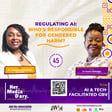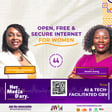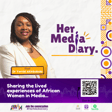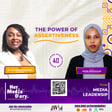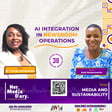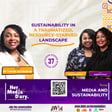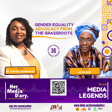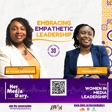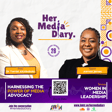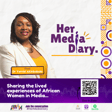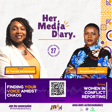
Her Media Diary Episode 25: “Standing Up For What You Believe” with Phathiswa Magopeni
Phathiswa Magopeni is a South African-born media personality, and former Head of News and Current Affairs at the South African Broadcasting Corporation. She currently sits on the Board of Directors for the SABC.
Phathiswa recounts her journey from her early life in rural South Africa, through her university years, and into her impactful career at SABC. She opens up about the struggles she faced, the lessons she learned, and the importance of trusting one's intuition.
Subscribe to Her Media Diary now on your favourite podcasting platform https://linktr.ee/hermediadiary
Learn about African Women in Media at https://africanwomeninmedia.com
List of Resources to Support Women in Media
· International Women’s Media Foundation (IWMF)
· African Women in Media (AWiM)
· Public Media Women in Leadership
· International Journalists’ network (IJNet)
